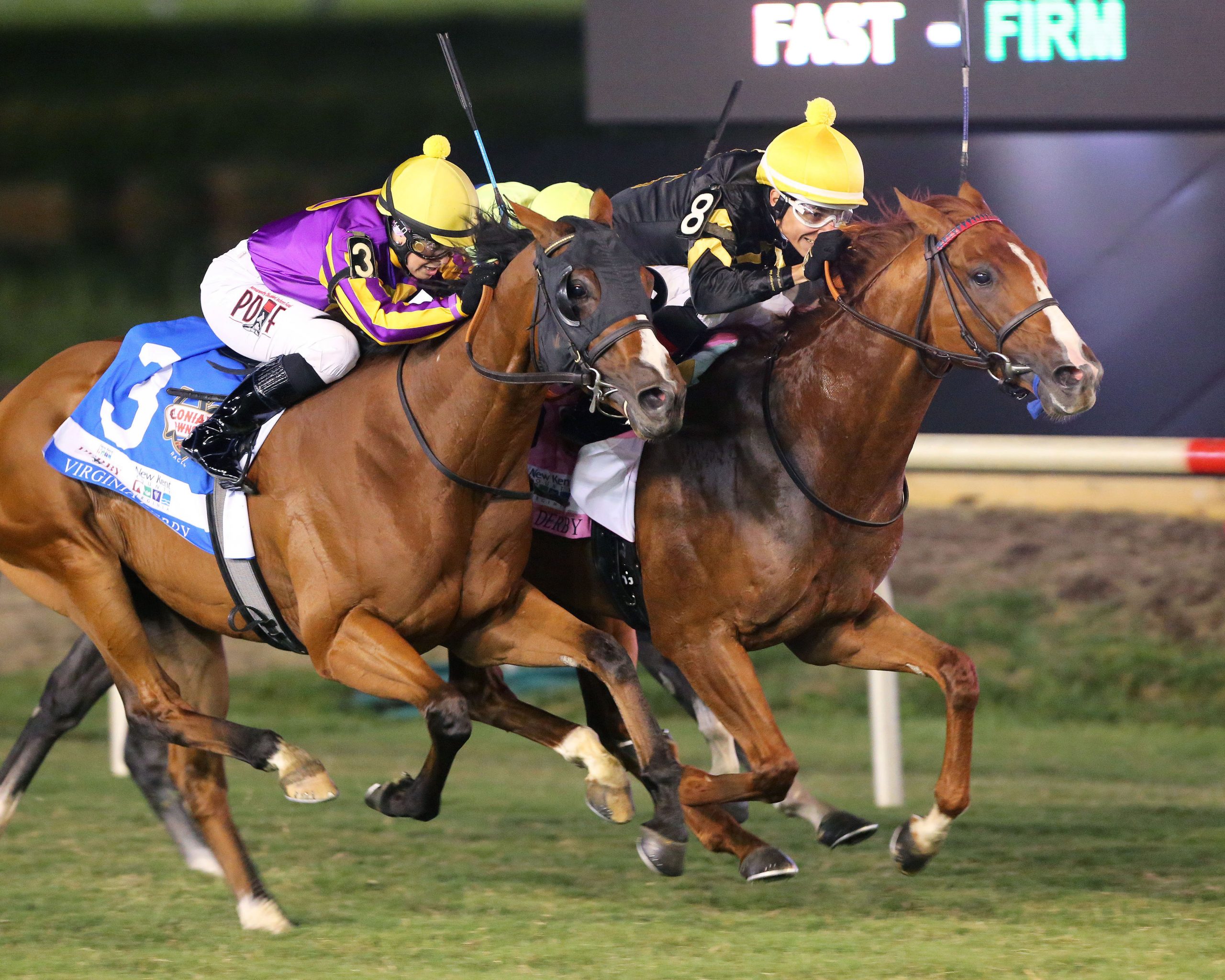The following appeared in The Racing Biz May 29 and was written by Nick Hahn.
While public attention has centered on racetracks that ought to be open but aren’t, Colonial Downs’s July 23 opening is fast approaching, too, and Virginia horsemen are awaiting Governor Ralph Northam’s green light to return live racing this summer.
Racing officials are looking to provide an encore to last year’s successful return of live thoroughbred racing in Virginia with the reopening of Colonial Downs. As several tracks across the country have shuttered, sanitized and are re-opening their doors, a few adjustments to the upcoming Colonial Downs racing schedule may also be forthcoming.
Horsemen have proposed an early-week shift to the racing calendar at Colonial Downs. Colonial’s original 2020 racing schedule, which envisioned a replay of last year’s Thursday-Saturday slate, was approved by the Virginia Racing Commission in December of 2019 — well before coronavirus or the advent of fan-less racing.

English Bee (inside) Holds off Jais’s Solitude to win the 2019 Virginia Derby. (photo by Coady Photography.)
“We’ve been discussing it with Colonial,” said Frank Petramalo, Executive Director of the Virginia Horsemen’s Benevolent and Protective Association (HBPA). “Nothing has been submitted to the Virginia Racing Commission yet.”
A Colonial Downs official referred questions on the matter to Petramalo.
Under the plan the three-day-a-week racing schedule of Thursday through Saturday would switch to Monday through Wednesday. Colonial’s opening day for its 18-day meet, currently set for Thursday, July 23, would shift to Monday, July 27.
The Virginia Racing Commission canceled its May 21 meeting, but it is expected that a meeting held in some manner will take place in late June.
“The thought [is] that Monday-to-Wednesday would work much better without spectators,” added Petramalo.
The move to early-week racing would shift Colonial’s place in the Thoroughbred landscape. Instead of following the nation’s major tracks, which all race on the weekend, the track would likely find itself virtually alone offering evening Thoroughbred racing early in the week, which could prove a boon to wagering.
During Colonial’s golden era between 2001 and 2008, the Virginia track handled over a million dollars a day on Mondays and Tuesdays, though grandstands were sparse. In those days, out-of-state handicappers showed plenty of interest in Virginia racing early in the week.
In addition to consideration of a schedule switch, Colonial has also developed a COVID-19 protocol plan that includes testing, masking and distancing. It awaits a review that goes through Virginia’s Secretary of Agriculture and Department of Health. The plan uses the guidelines developed by the National HBPA, the National Thoroughbred Racing Association, and tracks currently hosting racing.
“The ultimate decision is made by the Governor and his staff,” explained Petramalo. The package of proposals would allow the running of The Virginia Gold Cup (June 27), the Middleburg Spring Races (June 13) and Colonial’s meet, all without spectators. As a result of the shutdown of wagering on historical horse racing machines in Virginia, average daily purses for Colonial’s meet are expected to fall from $500,000 to $300,000, according to Petramalo.
Tracks have opened without spectators in West Virginia, Florida, Texas, Kentucky, California, Oklahoma, Utah, New Mexico, and Nebraska, where Fonner Park recently concluded a handle record-breaking meet. New York tracks open June 3 while on Thursday, horsemen in neighboring Maryland received approval to reopen their starting gates Saturday, May 30 at Laurel Park.
Not lost on Virginia racing officials is the recently concluded meet at Fonner Park in Nebraska, which ran in its own private timeslot on early weekdays in the height of the COVID-19 pandemic and cruised in the $2.5 million lane of average daily handle even without spectators. One of only a handful of tracks running with other gaming options severely limited, Fonner saw an unprecedented handle increase.
“We’re hoping the momentum built up across the country has a positive influence on our situation,” concluded Petramalo.

